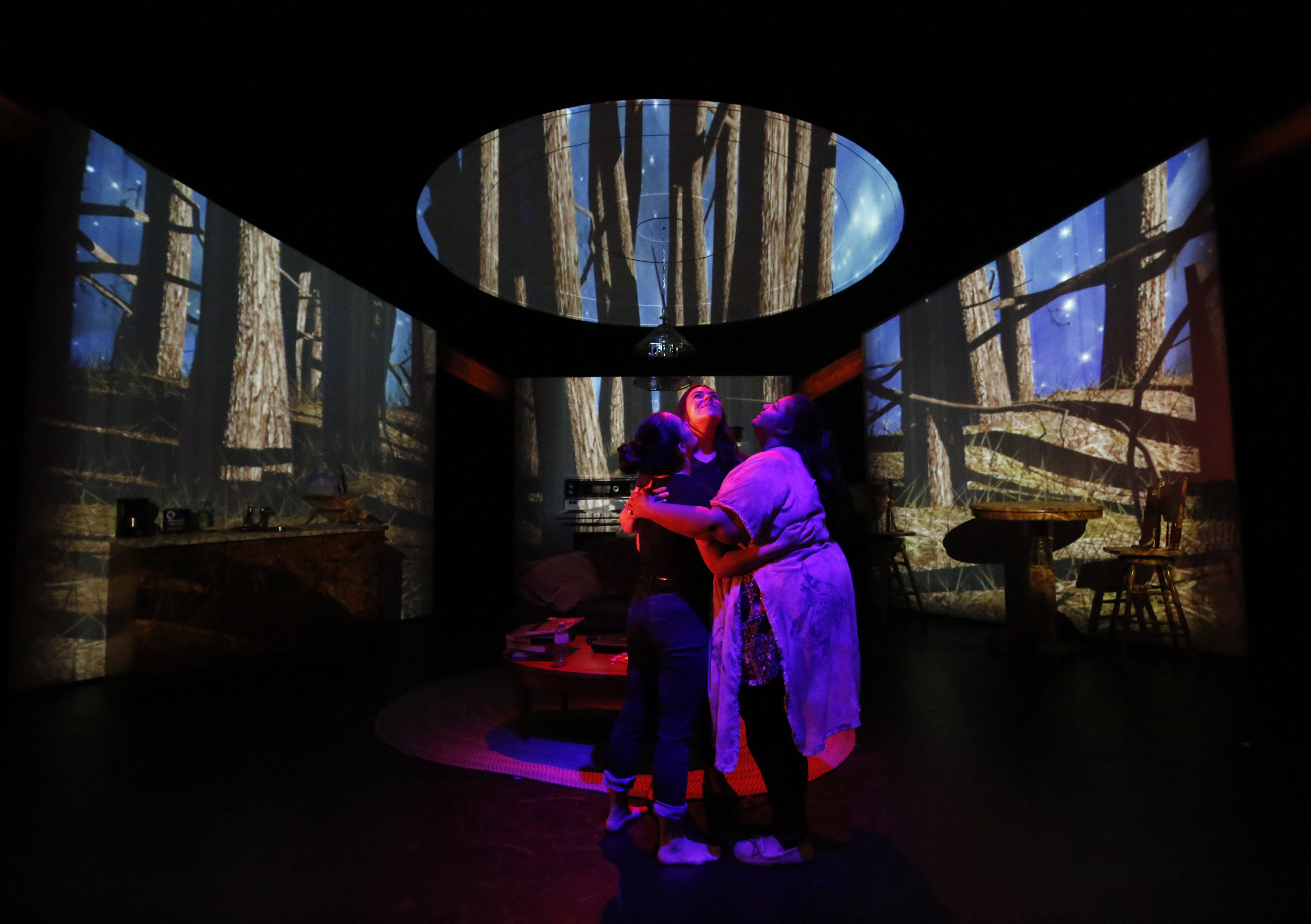
Indigenizing Theatre: An interview with Kamloopa Fire Creator Kim Senklip Harvey
Kamloopa is an Indigenous artistic ceremony that follows two urban Indigenous sisters, Kilawna and Mikaya, and their new friend, Edith, as they struggle in their own ways to understand themselves and their cultures. As they each come to terms with what it means to reconnect with their homelands, ancestors, and one another, it becomes clear that this story is not a hero’s journey; it doesn’t follow the “typical” three act play in structure or story arc. The artistic ceremony focusses on kinship relations, rather than a central conflict: this is a journey between women, a journey that happens within, between, and outside of themselves. It’s a journey that happens on Indian time: existing now, bringing the past, and holding the future. As the three women move through the world, they face issues of assimilation, disconnection, and loss, and the audience is witness to every ignorant, painful, funny, and awkward moment of what it means to find your way home again.
Continue reading Indigenizing Theatre: An interview with Kamloopa Fire Creator Kim Senklip Harvey







